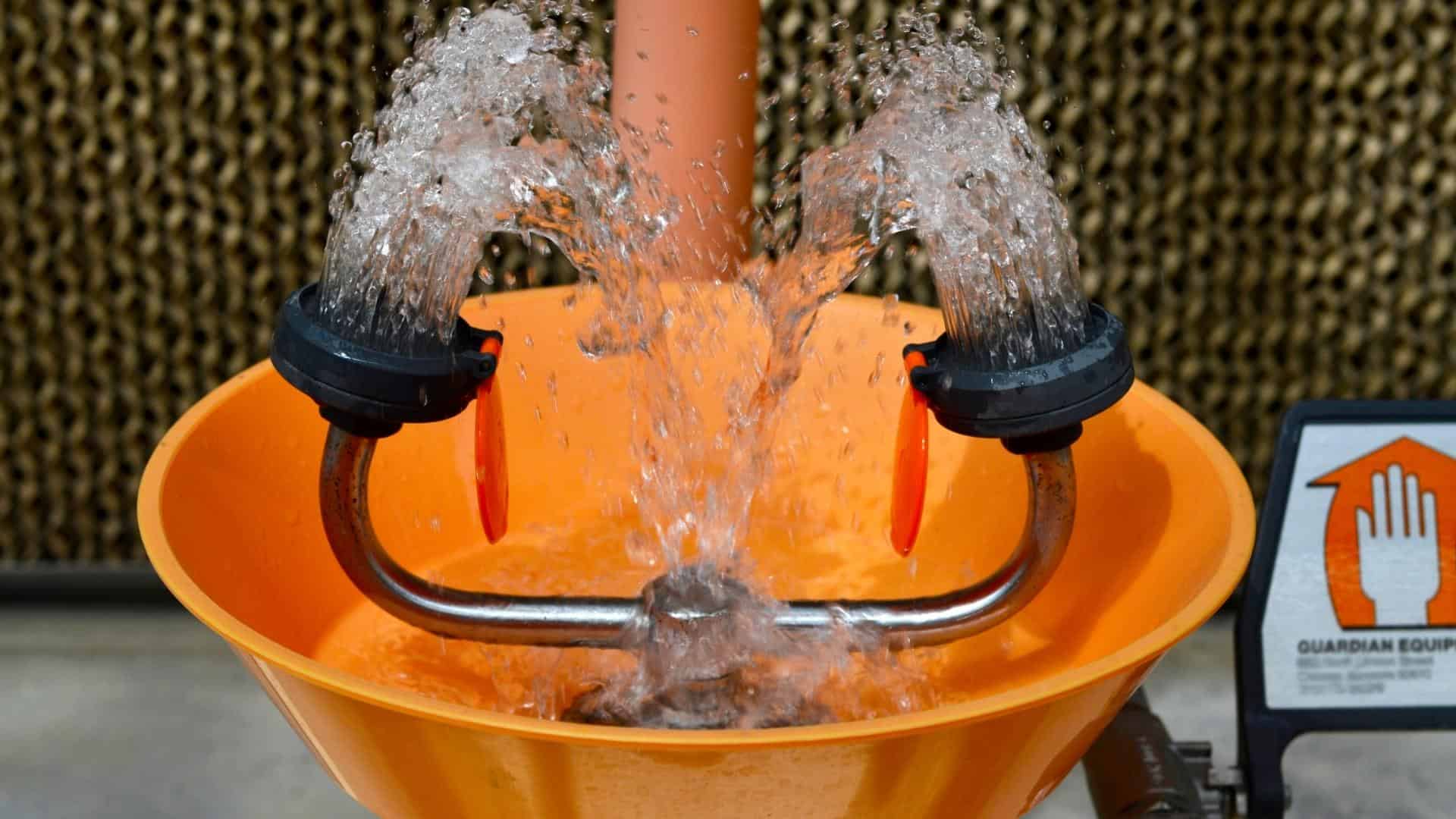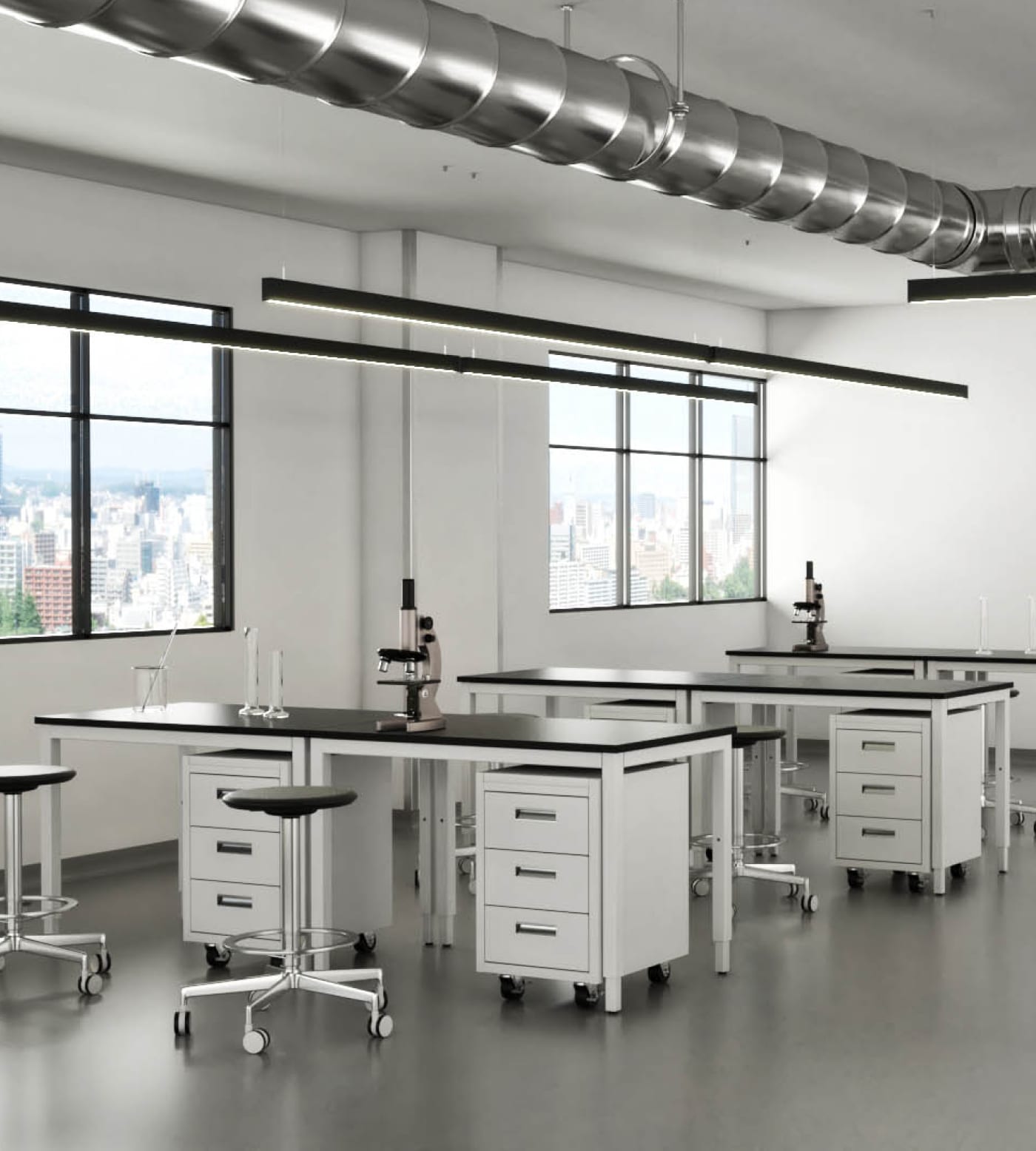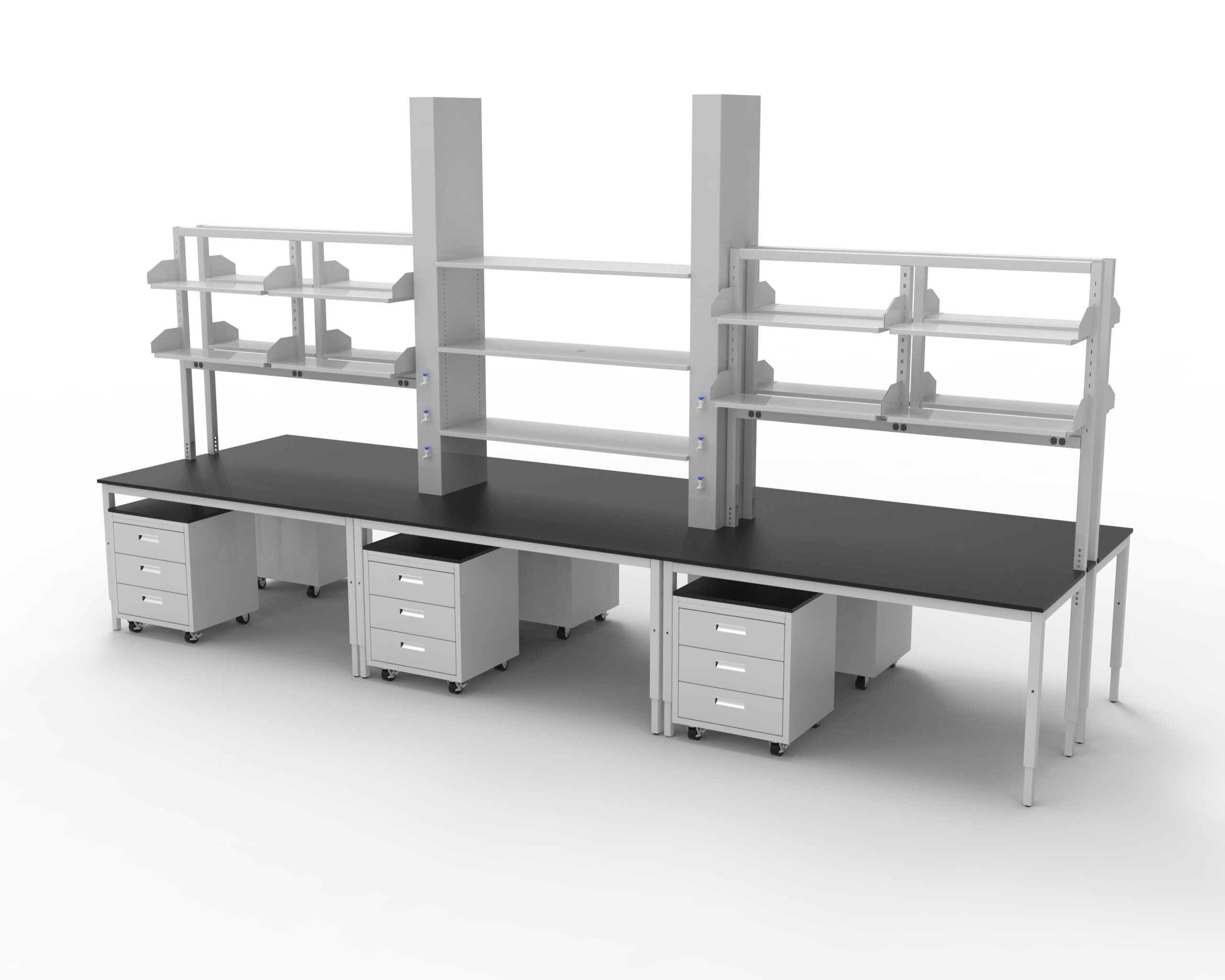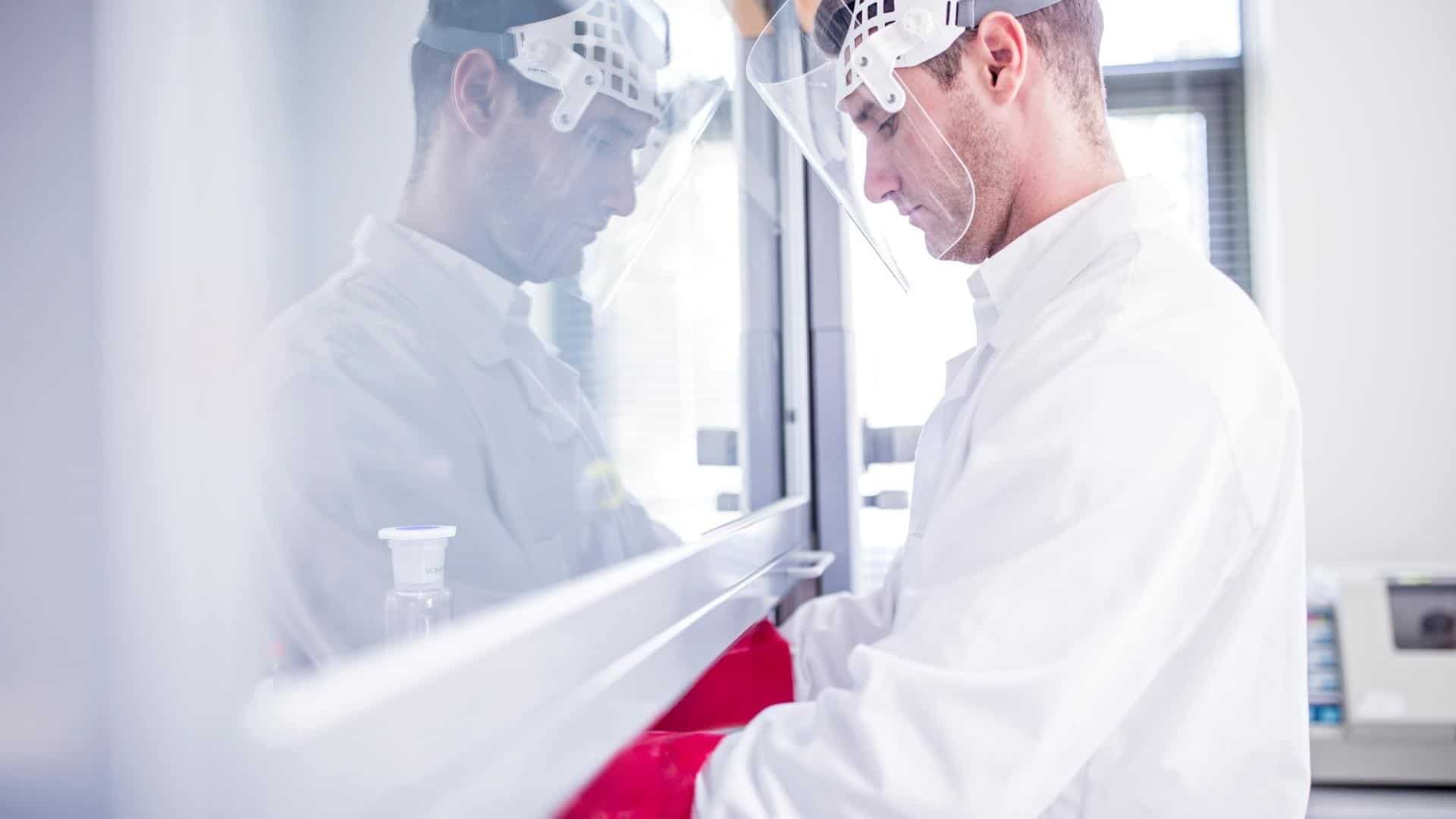Choosing the Right Material for Your Laboratory Furniture
Finding the right furniture and equipment for your laboratory is important, but a crucial part of that decision is finding furniture that is made from the right materials. Depending on the processes or experiments you intend to conduct, you’ll need laboratory furniture that can withstand certain conditions, such as high heat, humidity, or acidity, as well as more standard wear and tear.
At iQ Labs, we manufacture laboratory equipment and furniture using materials intended to withstand various chemical processes. Let’s take a look at some of the material options available when purchasing laboratory casework, chemical storage cabinets, and fume hoods.
Material Options for Laboratory Casework
Laboratory casework consists of the cabinets, tables, cases, and shelves used in labs. Traditionally, laboratory casework is constructed of one or more of the following materials:
- Cold rolled steel: Cold rolled steel is well suited for wet lab environments. An applied chemical-resistant coat of paint can make it even stronger.
- Stainless steel: Stainless steel is highly resistant to corrosion while being easy to clean.
- Phenolic resin: Phenolic resin is a favorite in hospital settings, as it is fairly resistant to bacteria and is easy to clean. It is highly affordable, but it is not as strong as epoxy resin.
- Epoxy resin coating: Epoxy resin is often applied to work surfaces in educational and professional laboratory settings.
- Wood: Wood is an affordable option often used in school labs. Butcher block is particularly popular for workstations.
- Plastic laminate: Plastic laminate is also a cost-effective material popular in educational settings.
Material Options for Laboratory Plumbing
It’s important to consider which materials are best suited for plumbing fixtures in laboratory settings, such as:
- Laboratory sinks: Most sinks are made from either stainless steel or epoxy resin.
- Eyewash stations: Eyewash stations are typically made from plastic or stainless steel. Often, plastic or Teflon™ caps are fitted onto the spray heads to prevent dust from building up when the eyewash station is not in use.
- Emergency showers: Emergency shower heads are typically made from plastic or stainless steel.
The Benefits of Steel Laboratory Casework
iQ Labs is proud to manufacture most of our laboratory casework cold rolled steel with a chemical-resistant epoxy paint or powder coat. Our remaining products are almost all manufactured from stainless steel.
Steel in general is an excellent material for wet laboratory environments. Its resistance to bacteria, water, moisture, and certain chemicals makes it ideal for a variety of laboratory processes. It is also easy to clean and maintain.
Cold Rolled Steel vs. Stainless Steel: What’s the Difference?
The main difference between cold rolled steel and stainless steel is its resistance to acids. Stainless steel is more resistant to rust, corrosion, and acidic damage than cold rolled steel. It is a favorite choice among food testing, pharmaceutical, cannabis production, and medical research labs.
However, stainless steel does scratch more easily than cold rolled steel. It also tends to be a more expensive option.
Material Options for Chemical Storage Cabinets
The type of material your chemical storage cabinet should be made out of depends on the types of chemicals you intend to store in it. Let’s take a look at the recommended materials for two common chemical storage cabinets: acid cabinets and flammable storage cabinets.
Types of Chemical Storage Cabinets & Recommended Materials
Polyethylene Acid Cabinet
iQ Labs lines the cabinet bodies, door, and shelves of our acid and corrosive storage cabinets with polyethylene. This protects the cabinet from fume- and spill-induced corrosion.
Flammable Storage Cabinet
Our flammable storage cabinets at iQ Labs are double-walled, lined with mineral wool insulation, and have epoxy-coated paint. These materials are necessary to make flammable cabinets highly chemical- and wear-resistant. Typically, flammable cabinets must be made from these materials in order to gain their safety certification.
Materials for Fume Hoods
Most of our fume hoods are made from 16 gauge galvanized, 18 gauge cold rolled steel. In some models, a chemical resistant polyresin is applied to strengthen the material against wear and tear. Stainless steel is used for our radioisotopic and perchloric acid fume hoods.
Fume hoods can also be customized with a variety of materials to meet your laboratory’s needs, including:
- Stainless steel liner
- Explosion-proof lighting and fixtures
- Vapor-proof light fixtures
- Chemical- and fire-resistant polyresin liner
Get High-Quality Laboratory Casework from iQ Labs
iQ Labs is proud to use high-quality materials in all of our products. No matter if you need steel laboratory casework, chemical-resistant storage cabinets, or highly durable fume hoods, iQ Labs has you covered. Contact us today to learn more.



